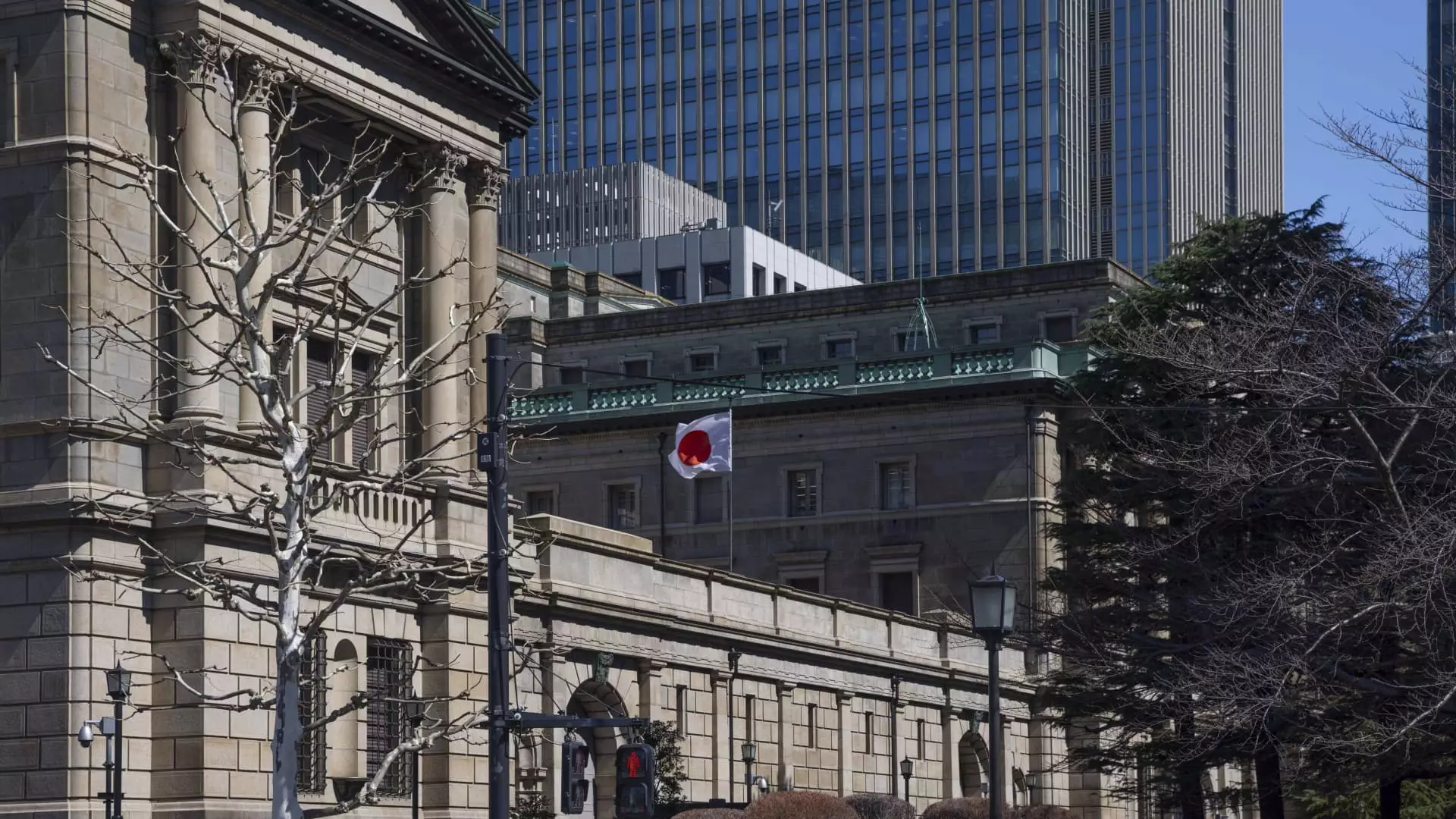In recent days, discussions surrounding Japan’s economic strategy have taken a sharper and more urgent tone, with the ruling Liberal Democratic Party’s policy chief, Itsunori Onodera, making compelling arguments about the consequences of a weakening yen. Amidst rising household living costs exacerbated by inflation, it is evident that the nation’s currency’s instability is not merely a financial statistic but a significant threat to citizens’ daily lives. Onodera’s call to action—to bolster industrial competitiveness as a way to fortify the yen—highlights a fear that transcends fiscal policies; it embodies a growing discontent within Japanese society grappling with the cost of living crisis triggered by currency depreciation.
The undeniable connection between a weak yen and rising prices is not new, but it has reached a critical point that demands urgent reform. By ignoring this interrelation, policymakers risk aggravating socioeconomic disparities at home. The ripple effects can be felt in many households that only seek to make ends meet, revealing a stark contrast between corporate prosperity and working-class struggle in Japan. The time to act is now, and it is incumbent upon not only the government but also the corporate sector to recognize that a thriving economy is built on the wellbeing of all its constituents.
Trade Talks and Tensions with the U.S.
As Japan prepares for trade negotiations with the United States, the tension peaks—particularly concerning currency policy. Onodera firmly rejected the idea of using Japan’s substantial U.S. Treasury holdings as a bargaining chip, urging that alliances prevail over aggressive financial maneuvers. Yet, can Japan afford to take such a passive stance in an increasingly combative trade environment? The refusal to leverage its assets may leave Japan at a disadvantage, especially as the U.S. government takes aggressive steps in negotiating tariffs that directly impact Japanese exports.
The reality is that Japan’s complacency in the face of rising tariffs and ongoing economic pressures may be seen as a tacit admission of defeat. Trade talks are not mere dialogues about tariffs; they encapsulate the very essence of national strategy and economic resilience in a globalized world. By shying away from using substantial assets like U.S. Treasuries as leverage, Japan risks emboldening aggressive U.S. trade tactics that directly jeopardize its industrial base. In doing so, it may inadvertently facilitate an environment wherein Japan’s economic sovereignty is compromised by those supposedly acting as allies.
Market Dynamics: A Delicate Balance
The financial markets are a reflection of underlying economic sentiments, and recent turbulence—particularly in the wake of President Trump’s trade actions—has sent shockwaves through Japan. The rapid sell-off in U.S. Treasuries amid rising inflation and currency volatility underscores the fragility of the current situation. The Bank of Japan (BOJ), with its slow approach to interest rate adjustments, finds itself at a crossroads, where decisive action could either stabilize markets or deepen the crisis.
The escapade of the yen’s depreciation is a symptom of greater systemic issues within Japan’s economy: the reliance on a devalued currency to bolster exports has begun to show diminishing returns. With industrial competitiveness as the stepping-stone to remedy this situation, it is paramount that Japan embraces a multipronged approach to revitalization—one that focuses on long-term structural reforms rather than short-term appeasement. The delicate balance of maintaining a thriving export economy while mitigating the vulnerabilities of currency weakness is not easily struck; yet, this is the challenge that lies ahead.
An Economic Identity Crisis
At its core, Japan’s struggle with the yen is emblematic of a broader identity crisis within a nation that has historically placed its economic prowess on its ability to compete globally. The notion that a strong yen could hinder export potential is a remnant of an outdated narrative; in today’s increasingly interconnected global economy, it is innovation, sustainability, and adaptation to market needs that will ultimately determine success.
As the Japanese government navigates through this tumultuous financial landscape, it must embrace the complexity of its economic identity—a move away from the reliance on the yen’s weakness toward cultivating industries that stand strong regardless of currency fluctuations. The time has come to reimagine a future where Japan is not just a participant in global trade, but a formidable leader that champions resilience and innovation in the face of adversity.
In the deepening economic crisis, the call for action cannot be underestimated, nor can complacency be afforded. Japan stands at a pivotal junction—will it rise to meet this challenge, or will it falter under the weight of its own policies? The stakes have never been higher.


Leave a Reply